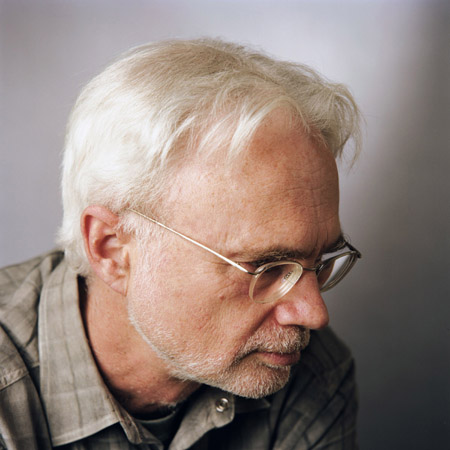John Adams gives the first of two Tanner Lectures on Human Values this afternoon at Yale University this afternoon, with the second to follow tomorrow afternoon. "Perhaps the most celebrated living American composer," writes the New Haven Advocate, "John Adams is nearly as adept with the English language as he is with musical notation." What's more, "Adams has created some of the most essential classical music of our age."
John Adams gives the first of two Tanner Lectures on Human Values at Yale University's Whitney Humanities Center this afternoon, with the second to follow tomorrow afternoon. Today's lecture is titled Doctor Faustus and His Composition: Reflections on Thomas Mann’s Fictional Composer; tomorrow's talk focuses on Doctor Atomic and His Gadget: Composing the American Mythology, a reference to the subject of Adams's 2005 opera, Doctor Atomic, about the creation of the first atomic bomb.
"Perhaps the most celebrated living American composer," writes the New Haven Advocate's Daniel Stephen Johnson, "John Adams is nearly as adept with the English language as he is with musical notation." In his recommendation of the lectures, Johnson cites such evidence of Adams's verbal skills as the "evocative titles" he has given his work; his memoir, Hallelujah Junction; and his program notes—"that rarest thing in the world: an enjoyable and unpretentious statement of the artist's intention."
Johnson goes on to look more closely at some of the composer's works, not least his operas, and the important place they hold in the musical world. "Through that agonizing process of creation, the struggle to remake the old operatic form into something that could communicate to modern audiences," Johnson suggests, "John Adams has created some of the most essential classical music of our age."
Read the article at newhavenadvocate.com. For more on the lectures, visit yale.edu.
---
City Noir, Adams's latest work, which was recently premiered by the Los Angeles Philharmonic and its new music director Gustavo Dudamel, has made its way onto a rather eclectic listing in the New York Times book blog Paper Cuts.
John Buntin, author of the true crime book L.A. Noir: The Struggle for the Soul of America's Most Seductive City, has included the piece in his playlist of music related to his book's theme. Joining works by Chet Baker, Eartha Kitt, Sarah Vaughan, Woody Herman, Peggy Lee, Bernard Herrmann, Art Pepper, Blind Willie Johnson, and Frank Sinatra that represent the sound and feel of noir, Adams's piece is described as "playing with all our favorite motifs," featuring "alto sax virtuosity, a melody that tiptoes up to those familiar 'blue' notes," and, ultimately, referencing that classic L.A. noir film, Chinatown. Bunton quotes Adams's own description of the piece as evoking "strange characters, like those of a David Lynch film ... who only come out very late on a very hot night."
You'll find the list at nytimes.com.
- Log in to post comments



